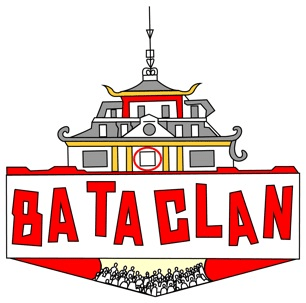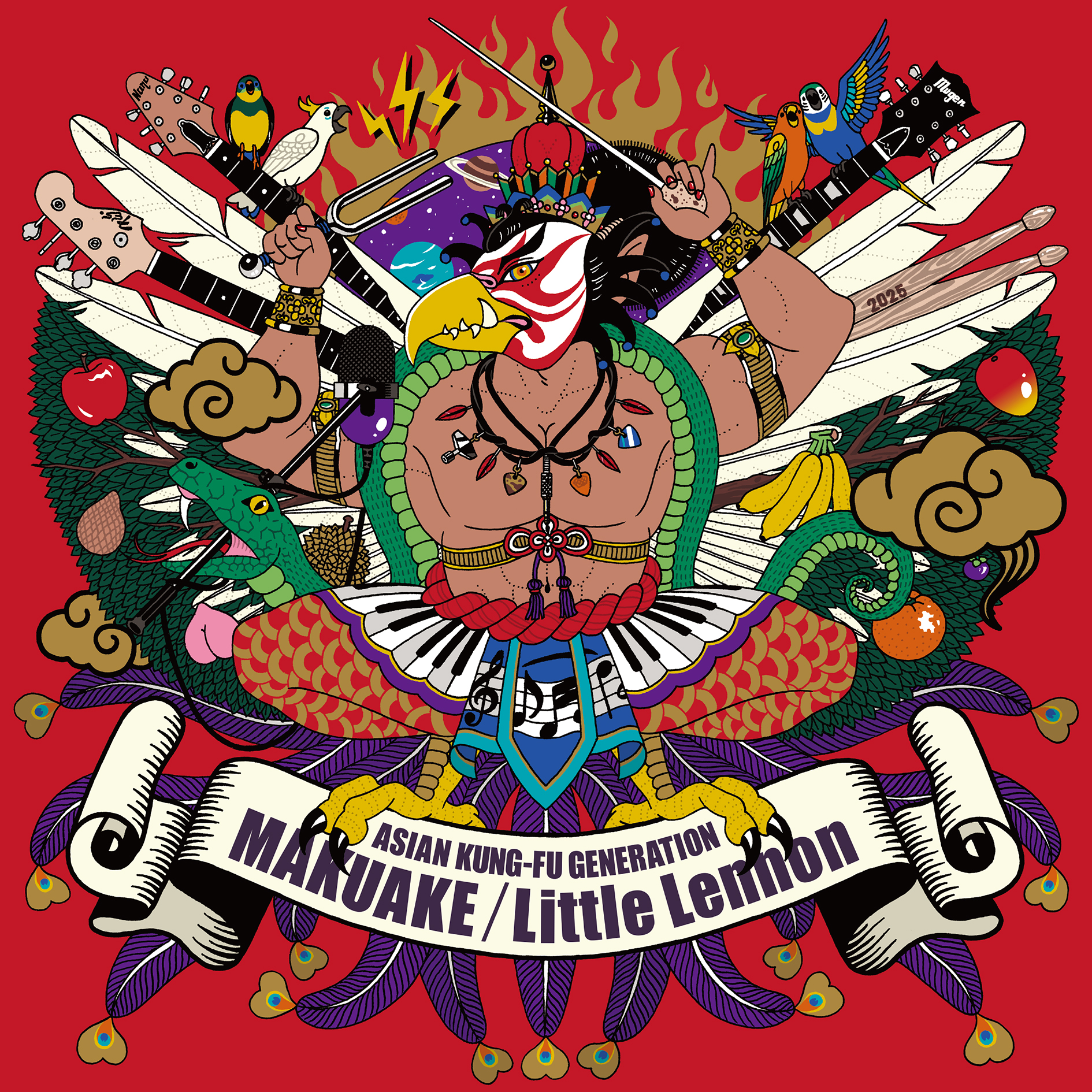Le Bataclan Interview

This interview was taken by a magazine journalist and akfgfragments.com administration in 2013 at Le Bataclan club in Paris.
Journalist: Tonight, the Bataclan will be sold-out. Did you know you guys were so popular in France?
Masafumi Gotoh: No (laughs), this is truly amazing!
Journalist: Among all the concerts you’ve done, which one would be your best memory?
Kiyoshi Ijichi: Our main stage at the Fuji Rock Festival and this European tour.
Kensuke Kita: Like Kiyoshi, I would also say the Fuji Rock and a small stage where we played at the beginning of our career. It was in the middle of the night, and we were worried whether the public would come. In the end, there were plenty of people!
Takahiro Yamada: My best memory was our first solo concert when we started our careers. We were anxiously following the tickets selling, and they were pretty well sold.
Masafumi Gotoh: It was in 2005. We made the first performance for an Oasis concert in a 10,000 seats room. To us, it was the legendary band! We were very moved and excited.
Akfgfragments: We are very happy and proud to welcome you to France. You are using the Internet more and more to live broadcasting your shows to the entire world. How do you think that this is important? Will you keep doing so?
Masafumi Gotoh: Indeed, the Internet is a very important tool. We cannot afford to give a real Japanese-like show to an overseas audience. That would be impossible to bring: the scenes, the settings… and everything we usually do for 20,000 spectators. How can we share such moments with strangers who can’t come to see us? The solution is the Internet. It is very important to us to develop the broadcasting and the sharing of our lives.
Journalist: Now that you are in France, what is your state of mind?
Kiyoshi Ijichi: We’ve just come from London… And, in comparison, we eat well here!
Kensuke Kita: All these little streets and buildings. It’s all so beautiful here! It’s impressive!
Takahiro Yamada: I’ve already visited a few monuments, and everything was impressive and much taller than we expected. I would like to stay a little longer in Paris to enjoy it.
Masafumi Gotoh: On one hand, through all of those views, landscapes, buildings and old things, the culture and history that you are proud of can be felt. We feel it when walking down the streets. On the other hand, in Tokyo, at the same time, we are rebuilding a train station. I mean, in Japan, the purpose is often to destroy things to replace them with new things, and that’s a shame.
Journalist: Among all of your songs, which one represents the best of the Asian Kung-Fu Generation’s spirit (aura)?
Masafumi Gotoh: (The band bursts into laughter, and all members look at their neighbours.) It is a difficult question. (Long moment of hesitation) Finding the correct answer will be my homework for the next concert.
Journalist: You have been through different musical styles during your career: Starting with Punk-Rock; then an Ethereal style; Pop; and Experimental… Do you think you can still evolve your style, and if so, in which direction?
Masafumi Gotoh: An evolution, yes… But we don’t know what will happen in the next album!
Journalist: Your music has well evolved. What is motivating you guys and pushing you to continue making music nowadays?
Masafumi Gotoh: This is difficult to explain exactly because there are so many different reasons that motivate us. When we were youngsters and in our early twenties, it was rather the feelings of boredom, anger… A certain form of implosion formed the root, the motivation of our music. Gradually, as we matured, we started to seek harmony between the band’s members. Our sound is born from the beauty of that association. We also try to keep the Japanese rock style ringing. To find our style, our origin, our identity… This is also what we look for in our music and our art… We think about our country… Anyway, so many different reasons…
Journalist: The designer Yusuke Nakamura seems inseparable from the band’s identity. Do you consider him as a member of the band? Do Asian Kung-Fu Generation exist without him?
Masafumi Gotoh: This is right! Yusuke Nakamura is the 5th member of the band and he will keep drawing until he’s dead. This is sure! We wanted to bring him with us and put a chair at this conference by our sides, but… he is as stubborn as a mule. Sorry, that’s a risk for our popularity but we didn’t succeed in making him come.
Journalist: What feeling did the nuclear Fukushima disaster trigger in you for having created the free magazine ‘The Future Times’ and the No Nukes festival with its stages powered with solar energy?
Masafumi Gotoh: A long time before the accident, we started to inform ourselves about nuclear power stations and recycling, very cumbersome and dangerous. So we were aware of the situation before the Fukushima nuclear disaster. In Japan, there is strong pressure when we broach political topics, especially nuclear energy. So I wasn’t able to start my action before the accident. This is a huge pity, because, if I had acted sooner, things might have happened differently – some people might have awakened. This is a huge pity, but also a motivation, today, for doing all these actions.
Journalist: Is it common for the involvement of the bands, in Japan, in the fights (protests) against nuclear energy? Would you consider it a duty?
Masafumi Gotoh: As far as we are concerned, we think it is a duty. In reality, most celebrities, singers, rockstars, actors… Because of the pressure, the key figures do not pronounce themselves publicly. These people are not just quiet because they don’t have an opinion. Their problem would be the sponsors withdrawing their work. And without sponsors, they couldn’t work any more. As for us, we remain an independent band. The magazine ‘The Future Times’, for example, is self-financed. Everything is working well by being independent and we want to keep working that way. Compared to occidental societies, this kind of attitude is avoided in Japan. As a Japanese person, I say to myself, ’I have to do it, I am not ashamed nor feel guilty about it.’ I would like this kind of thinking would be spread in Japan, through actions like mine.

